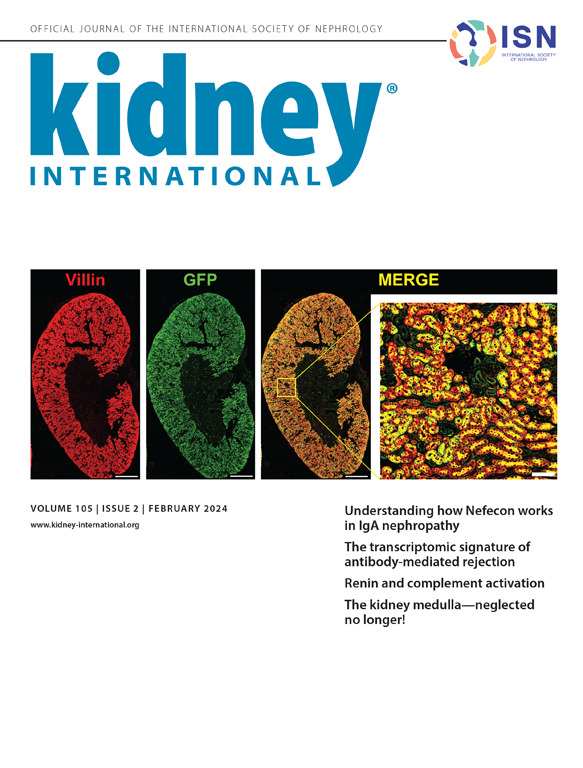Changing paradigms of studies in kidney diseases.
IF 12.6
1区 医学
Q1 UROLOGY & NEPHROLOGY
引用次数: 0
Abstract
Recognizing kidney disease as a major global health issue, the International Society of Nephrology (ISN) convened a two-day international, multi-stakeholder meeting to develop a roadmap for advancing clinical research in nephrology. The meeting focused on promoting the use of patient-reported outcome measures (PROMs), moving beyond single biomarker targets, adopting innovative trial designs, and incorporating hierarchical composite endpoints. Participants included clinicians, trialists, regulators, patient partners, and industry experts invited from all ISN regions. Discussions emphasized the importance of inclusive trial design, validation of PROMs, predictive enrichment strategies, and broader trial accessibility across resource settings. Key recommendations included enhancing diversity in trial populations, avoiding overreliance on isolated biomarkers, adopting novel study designs, strengthening public-private partnerships, and validating composite endpoints. A coordinated effort was deemed essential to implement these strategies in both research and practice, ensuring sustainable progress and reducing the global burden of kidney disease.肾脏疾病研究范式的改变。
认识到肾脏疾病是一个主要的全球健康问题,国际肾脏病学会(ISN)召开了为期两天的国际多方利益相关者会议,以制定推进肾脏病临床研究的路线图。会议的重点是促进使用患者报告的结果测量(PROMs),超越单一的生物标志物靶点,采用创新的试验设计,并纳入分层复合终点。与会者包括来自所有ISN区域的临床医生、试验人员、监管机构、患者合作伙伴和行业专家。讨论强调了包容性试验设计、PROMs验证、预测性富集策略以及跨资源设置更广泛的试验可及性的重要性。主要建议包括增强试验人群的多样性,避免过度依赖孤立的生物标志物,采用新颖的研究设计,加强公私合作伙伴关系,以及验证复合终点。人们认为,在研究和实践中实施这些战略,确保取得可持续进展并减少全球肾脏疾病负担,必须作出协调一致的努力。
本文章由计算机程序翻译,如有差异,请以英文原文为准。
求助全文
约1分钟内获得全文
求助全文
来源期刊

Kidney international
医学-泌尿学与肾脏学
CiteScore
23.30
自引率
3.10%
发文量
490
审稿时长
3-6 weeks
期刊介绍:
Kidney International (KI), the official journal of the International Society of Nephrology, is led by Dr. Pierre Ronco (Paris, France) and stands as one of nephrology's most cited and esteemed publications worldwide.
KI provides exceptional benefits for both readers and authors, featuring highly cited original articles, focused reviews, cutting-edge imaging techniques, and lively discussions on controversial topics.
The journal is dedicated to kidney research, serving researchers, clinical investigators, and practicing nephrologists.
 求助内容:
求助内容: 应助结果提醒方式:
应助结果提醒方式:


